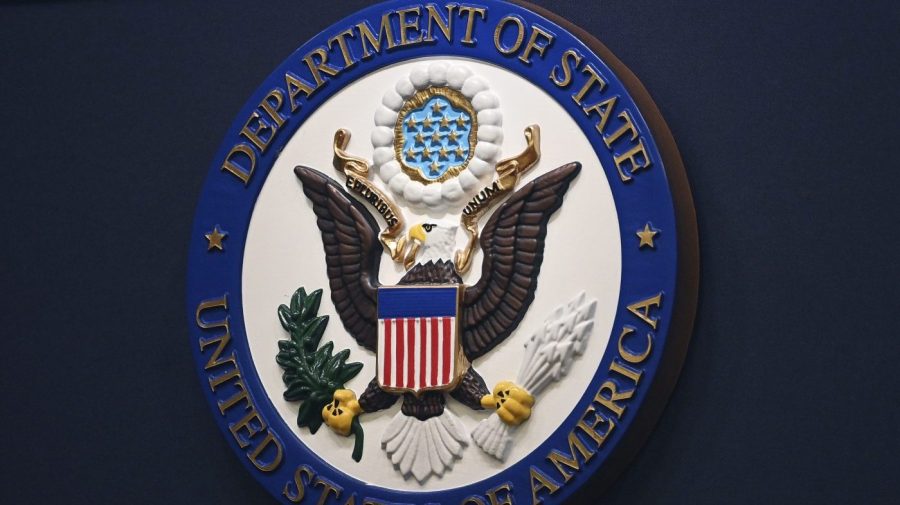The Biden administration is appointing the head of the U.S. Institute of Peace (USIP) to take over the role of coordinator for humanitarian aid to Gaza.
Lise Grande, the CEO and President of USIP and veteran United Nations diplomat, will take over the role of special envoy for Middle East humanitarian issues, a position created one week after Hamas’s surprise attack against Israel on Oct. 7, and which triggered the ongoing war against the group in the Gaza Strip.
Grande takes over the position from David Satterfield, a former ambassador and veteran Middle East diplomat who has worked to address the dire humanitarian crisis in Gaza, where there’s little protection for civilians and aid workers who have been killed, wounded, displaced, and face starvation, with little to no safe areas for refuge or access to lifesaving materials.
“The provision of life-saving humanitarian assistance into Gaza needs to be increased and sustained. Lise’s unique experience overseeing similar endeavors in complex and dangerous circumstances will allow her to continue this round the clock effort,” Secretary of State Antony Blinken said in a statement, announcing Grande’s appointment.
“The United States will continue to pursue all possible avenues to ensure aid gets to the most vulnerable populations that need it, and that humanitarian workers operating in the region are protected,” he continued. “As Special Envoy, Lise will work closely with USAID, other colleagues across our government, regional partners and the Government of Israel to ensure this happens.”
Grande is a veteran diplomat of the U.N. leading, managing and coordinating large-scale operations, Blinken said, including in Iraq during the fight against the Islamic State, working to stabilize more than 20 cities that had been liberated from ISIS control.
“She has an extensive background working in Africa and the Middle East including as the head of UN humanitarian and development operations in Yemen, where she coordinated one of the UN’s largest operations globally,” the secretary added.
The humanitarian crisis in Gaza is one of the most complex situations for governments, the United Nations and aid workers trying to address and reach vulnerable civilians amid intense Israeli bombardment targeting Hamas’s military positions, that are largely embedded among civilian sites.
An Israeli strike killing seven aid workers with the World Central Kitchen aid group earlier this month — in addition to the deaths of approximately 200 aid workers throughout Israel’s war against Hamas, and tens of thousands of civilian casualties — represents only one aspect of the impossible conditions challenging efforts to provide aid to Gaza’s most vulnerable population of more than one million people.
Satterfield, speaking to reporters at the State Department Tuesday, said the humanitarian situation has improved since President Biden pressed Israeli Prime Minister Benjamin Netanyahu in a call on April 4.
“The risk of famine throughout Gaza is very high, especially in the north. We’ve been very clear: Israel must do everything possible to facilitate efforts to avert famine in Gaza,” Satterfield said.
“Now, the President has made this point clear to Prime Minister Netanyahu during his April 4th call, and he also made clear that U.S. policy with respect to Gaza will be determined by our assessment of Israel’s actions — immediate actions — to protect innocent civilians and ensure the safety of humanitarian workers, as well as to increase the amount of assistance reaching those in need in Gaza,” he added.
The Biden administration is working to try and get Hamas to agree to a deal that would release an estimated 133 hostages it kidnapped from Israel on Oct. 7, in exchange for a six-week cease-fire deal, that is said to include a massive scale up of humanitarian assistance of food, shelter and medical treatment.
But the administration is putting the blame on Hamas as rejecting the deal, and in particular the head of Hamas in Gaza, Yahya Sinwar, as an obstacle. The administration has said negotiations taking place in Egypt and Qatar and yielded progress, but that Sinwar had rejected these efforts.
Biden released a joint statement Thursday with leaders of 17 countries whose citizens are being held hostage, were held hostage, or were killed in Hamas’s attack against Israel, pressuring the group to accept a U.S.-led deal for the hostage release and cease-fire.
Copyright 2024 Nexstar Media Inc. All rights reserved. This material may not be published, broadcast, rewritten, or redistributed.

